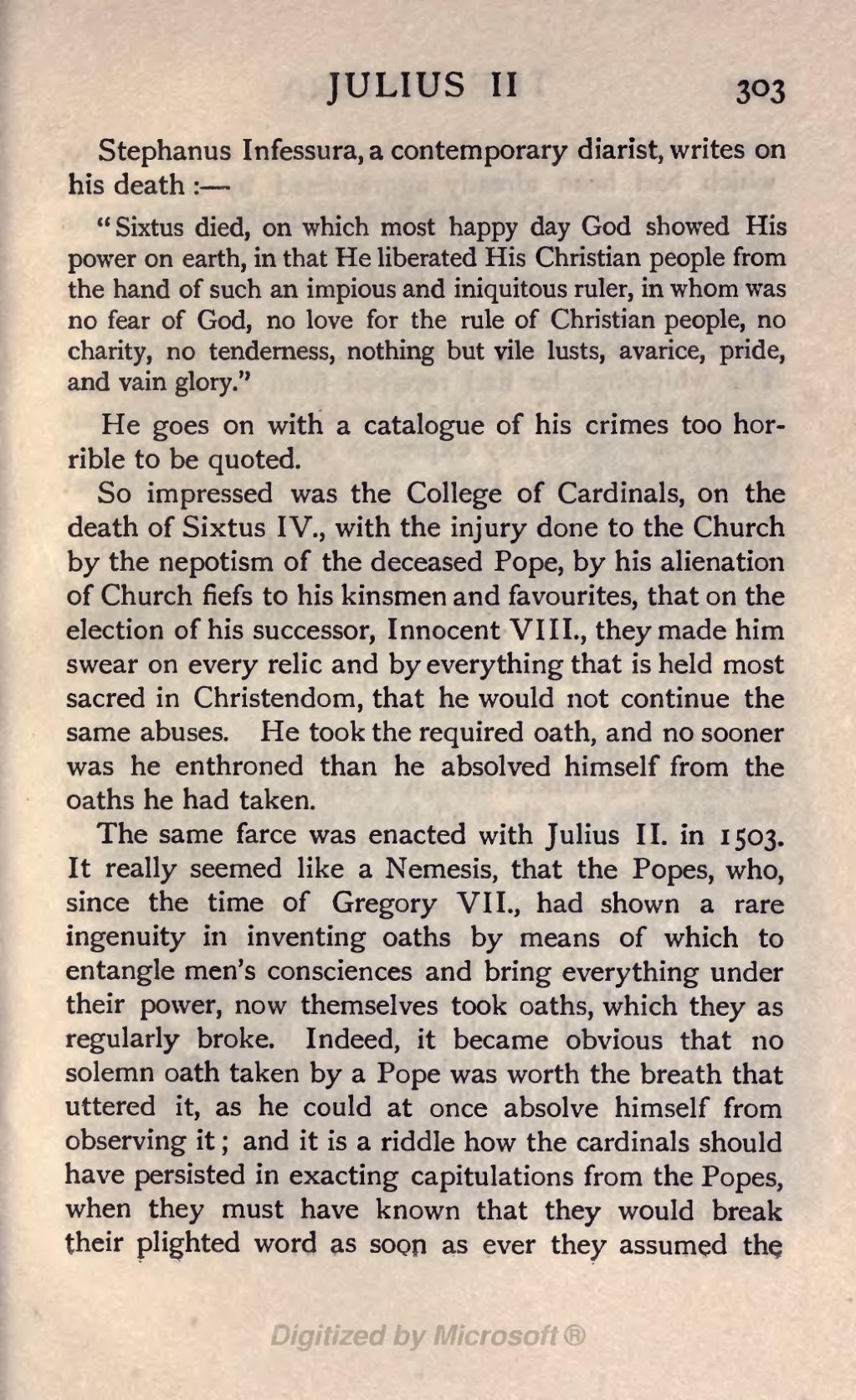Stephanus Infessura, a contemporary diarist, writes on his death:—
"Sixtus died, on which most happy day God showed His power on earth, in that He liberated His Christian people from the hand of such an impious and iniquitous ruler, in whom was no fear of God, no love for the rule of Christian people, no charity, no tenderness, nothing but vile lusts, avarice, pride, and vain glory."
He goes on with a catalogue of his crimes too horrible to be quoted.
So impressed was the College of Cardinals, on the death of Sixtus IV., with the injury done to the Church by the nepotism of the deceased Pope, by his alienation of Church fiefs to his kinsmen and favourites, that on the election of his successor, Innocent VIII., they made him swear on every relic and by everything that is held most sacred in Christendom, that he would not continue the same abuses. He took the required oath, and no sooner was he enthroned than he absolved himself from the oaths he had taken.
The same farce was enacted with Julius II. in 1503. It really seemed like a Nemesis, that the Popes, who, since the time of Gregory VII., had shown a rare ingenuity in inventing oaths by means of which to entangle men's consciences and bring everything under their power, now themselves took oaths, which they as regularly broke, Indeed, it became obvious that no solemn oath taken by a Pope was worth the breath that uttered it, as he could at once absolve himself from observing it; and it is a riddle how the cardinals should have persisted in exacting capitulations from the Popes, when they must have known that they would break their plighted word as soon as ever they assumed the
